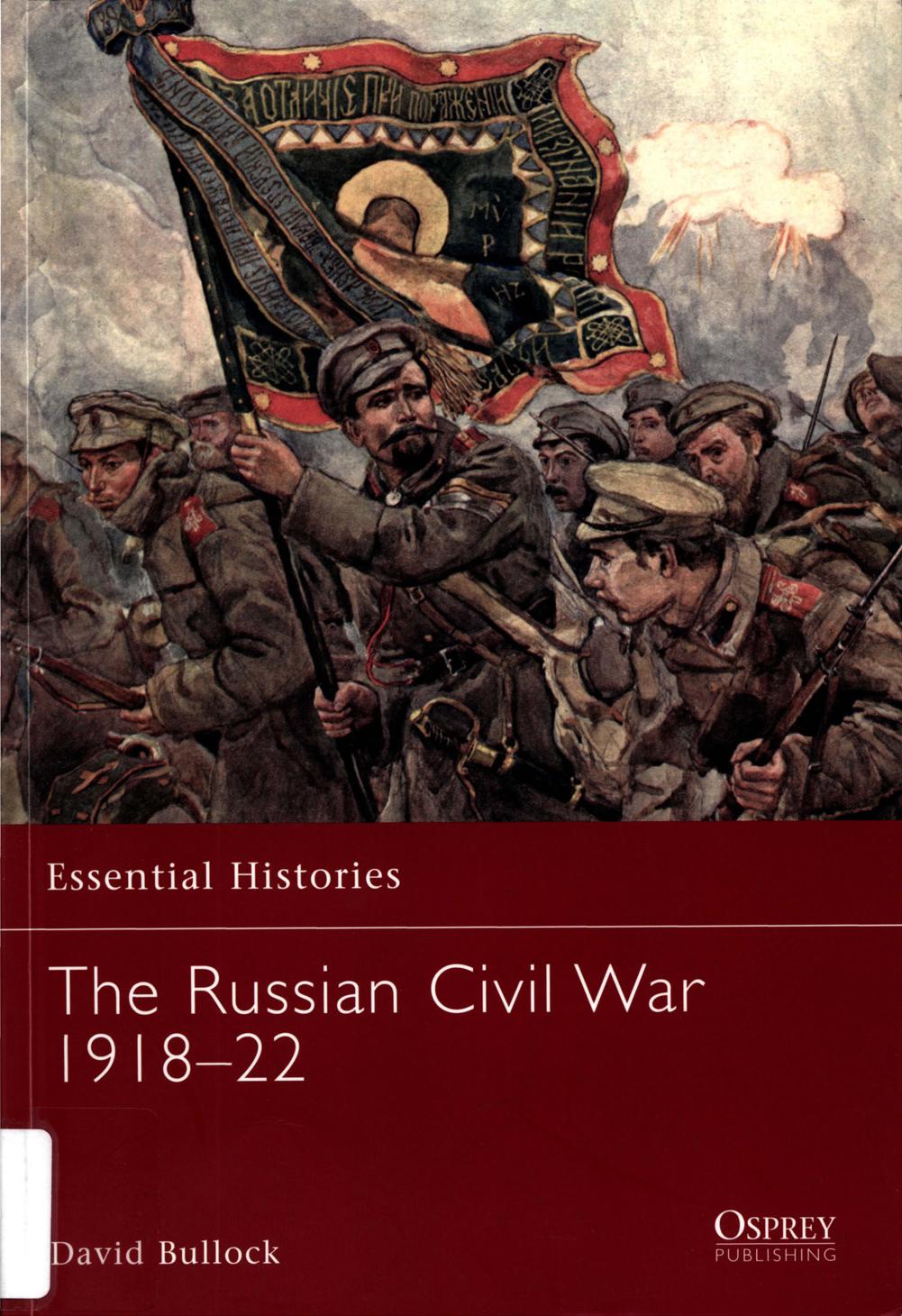The Russian Civil War 1918-22 by David Bullock

Author:David Bullock
Language: eng
Format: epub, pdf
Tags: The Russian Civil War 1918–22
ISBN: 9781782005360
Publisher: Osprey Publishing
M.V.Tukachevsky, one of the most brilliant Red commanders alongside Frunze and Blyukher. Despite his background as a former tsarist lieutenant and a minor member of the nobility, the Bolsheviks promoted him into positions of trust. He commanded 1st Army against KOMUCH in 1918, 8th Army against the Don Cossacks in spring 1919, then 5th Army against Kolchak, rising to lead the Caucasus Army Group in early 1920 and the Western Army Group against Poland. He became a Marshal of the Soviet Union in 1935. (Painting by L. Kotliarov, Sovietsky Kudoshnik art card)
Most importantly in terms of morale, the future path of the civil war and subsequent Soviet history was the thrust from the east. Here, Budenny’s cavalry, roughly comparable in numbers with the corps of Mamontov and Shkuro, but superior in terms of infantry support, stove in the White flank from Voronezh to Kastornaia. This was the decisive battle, the turning point of the civil war. Writing from his train on 25 October, in En Route No. 102 Trotsky proclaimed the simple truth: ‘the enemy has been dealt a blow from which he will never recover’.
Focused on Denikin, the Reds were not prepared for the timing and speed of Yudenich’s advance on Petrograd on 28 September. Alarmed, Lenin and several of the leading Bolsheviks were in favour of abandoning the city. Trotsky, fresh from the Southern Front, arrived in Petrograd with his armoured train and full staff, effecting what would become his finest days since Kazan. Judging by the flurry and tenor of his orders, however, even he was worried.
Demonstrating an almost immediate grasp of conditions at the front, he castigated the 7th Army units for ‘a shameful panic’ and ‘senseless flight’ at Gatchina on the 17th, and for regiments exchanging friendly fire then running away on the 18th. Orders to the 7th Army next described the nature of the enemy and his tactics and what Red commanders must do to counter these. In his own words, the enemy ‘always keeps just within range, and by using his machine guns and automatic rifles he develops an impressive firepower which conceals the insignificance of his numbers’. He also derided the persistent cries of being ‘flanked’ or ‘encircled’ in reports. ‘The enemy operates by night, so as to use darkness to conceal the smallness of his numbers and to frighten us.’ And: ‘The enemy’s interest lies in keeping us at firing distance. … Our interest lies in getting close enough to use the bayonets, when the mere sight of us is bound to overwhelm the enemy’s scanty forces.’
Disingenuously, the Bolsheviks had tarred the White Northwestern Army as nothing more than capitalist hirelings. Now they had to deal with reality. Unwittingly, Trotsky’s reports had revealed the hollowness of Bolshevik propaganda. Yudenich’s men used range and mobility, and fighting in small groups in flank and rear actions at night: in short, the tactics of professionals to lever and hustle a more numerous but less steady foe towards Petrograd.
However, steadiness Trotsky was willing to provide. Order No.
Download
The Russian Civil War 1918-22 by David Bullock.pdf
This site does not store any files on its server. We only index and link to content provided by other sites. Please contact the content providers to delete copyright contents if any and email us, we'll remove relevant links or contents immediately.
| Africa | Americas |
| Arctic & Antarctica | Asia |
| Australia & Oceania | Europe |
| Middle East | Russia |
| United States | World |
| Ancient Civilizations | Military |
| Historical Study & Educational Resources |
Red Famine: Stalin's War on Ukraine by Anne Applebaum(2465)
Chernobyl by Serhii Plokhy(2128)
Midnight in Chernobyl by Adam Higginbotham(2079)
The House of Government by Slezkine Yuri(1846)
Midnight in Chernobyl: The Untold Story of the World's Greatest Nuclear Disaster by Adam Higginbotham(1776)
Red Shambhala by Andrei Znamenski(1749)
The Gulag Archipelago (Vintage Classics) by Aleksandr Solzhenitsyn(1725)
From Cold War to Hot Peace by Michael McFaul(1712)
All the Kremlin's Men by Mikhail Zygar(1696)
Putin's Labyrinth(1656)
Red Notice by Bill Browder(1592)
The Future Is History by Masha Gessen(1591)
From Russia with Lunch by David Smiedt(1551)
A People's Tragedy by Orlando Figes(1544)
The Romanovs by Simon Sebag Montefiore(1487)
How to Tame a Fox (and Build a Dog): Visionary Scientists and a Siberian Tale of Jump-Started Evolution by Lee Alan Dugatkin & Lyudmila Trut(1469)
Putin's Labyrinth: Spies, Murder, and the Dark Heart of the New Russia(1455)
The Lost Spy by Andrew Meier(1398)
Art and Revolution by John Berger(1386)
